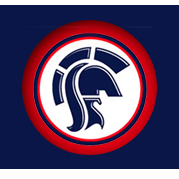
(View Complete Item Description)
This collection of activities and resources is a companion guide for the 15-minute film Defying genocide. The history of the Holocaust and the 1994 Rwandan genocide illustrate the entire spectrum of human behavior, from unimaginable evil to extraordinary goodness.
Through a study of the Holocaust, Rwanda, and genocide, students learn that genocide occurs because individuals, organizations, and governments make choices to participate, resist, or turn away.
Students can also see that at the same time human beings have potential to inflict harm and suffering, they have the potential to rescue and to stand up against evil. The information in this packet is designed to help learners of grades 7 and up understand the context of the genocide in Rwanda and consider the actions of a few individuals who saved lives.
In addition to background materials, a timeline, a map, and a vocabulary list, the packet provides activities for before and after viewing the film.
Material Type:
Lesson Plan












